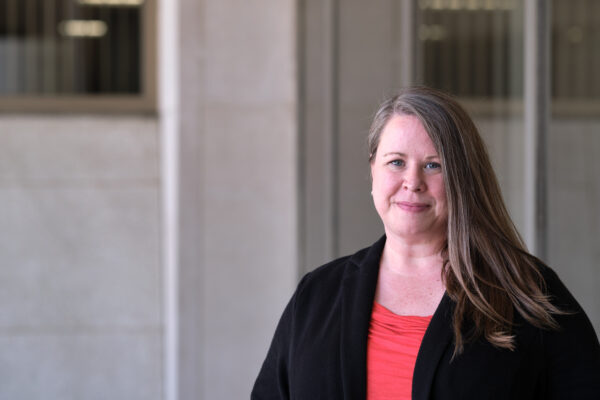Today my guest editorial, Local View: Power in Raising Voices, ran in the Lincoln Journal Star. A few years ago, I never could have imagined being this public about such a deeply personal part of my life — my own experience accessing abortion care. But today, now that my story is out there, my only regret is that I waited so long to share it.
For years I felt that in order to be successful, I needed to hide the fact that I had an abortion. Over time, it has become increasingly clearer to me that deciding to have an abortion actually drove my success. I know I am not alone in initially feeling stigma and shame surrounding my personal abortion experience, but I also know that I am not alone in feeling motivated to move past the shame and secrecy by raising my voice and telling my story.
With the impending and relentless threats to abortion on the federal and state levels, I was compelled to tell my story at this moment. Access to abortion allowed me to make the decision that was best for me and my future, and we may soon face a new reality where Nebraskans are no longer able to make those same personal decisions.
I was inspired to write my guest editorial by the courageous Nebraskans who have blazed this trail before me. People who spoke out against a bill that would ban all abortions should Roe v. Wade be overturned needed access to abortion care for all different reasons: because they weren’t ready to parent, because they were a sexual assault survivor, because they were given a fetal diagnosis. The reasons for my decision were informed by surviving domestic violence and stalking, and cemented by experiencing the consequences of addiction, incarceration, domestic violence, suicide and poverty within my family. No matter my reasons for deciding to end my pregnancy, the bottom line is that trauma does not make anyone’s decision to have an abortion more valid than anyone else’s need for abortion care.
Whether they know it or not, all Nebraskans know and care about someone who has had an abortion as more than one in four women will access abortion care in their lifetime. I, like nearly all people who have had an abortion, would not change my decision. As a direct result of access to abortion, I was able to move out of the survival job I was working and take a job as a prison correctional officer. Before my abortion, I had never thought about becoming an attorney or working in the legal field, but I knew the legal representation I had received through the judicial bypass process changed the trajectory of my life. Eventually moving into a position at the prison’s library motivated me even more to continue my own education as I saw the power of legal resources for system-impacted Nebraskans. I went on to get my associates degree in Legal Assisting, then my bachelor’s degree in Paralegal Studies. Seeing first-hand the impact that having access to a competent and caring attorney had on me and people who were experiencing incarceration was something that motivated me to apply to law school and continues to motivate me to this day.
After I graduated law school and passed the Bar exam, I began working for non-profit/public interest law firms. I took my responsibility as an advocate for my clients seriously, yet I continued to operate under the belief that it was best to hide some of my personal lived experiences that were not consistent with the “norm” attorney experience. I have slowly come to recognize that without my lived experiences, including my abortion, I would not find myself in my current position at the Legal Director of the ACLU of Nebraska or with the opportunities my family and I have today. Additionally, I have realized that being open and honest about my own experiences, regardless of the culture of shame and silence that has been created around those experiences, can be an effective advocacy tool for my clients, colleagues and community.
This moment is too pivotal for me to remain silent.

